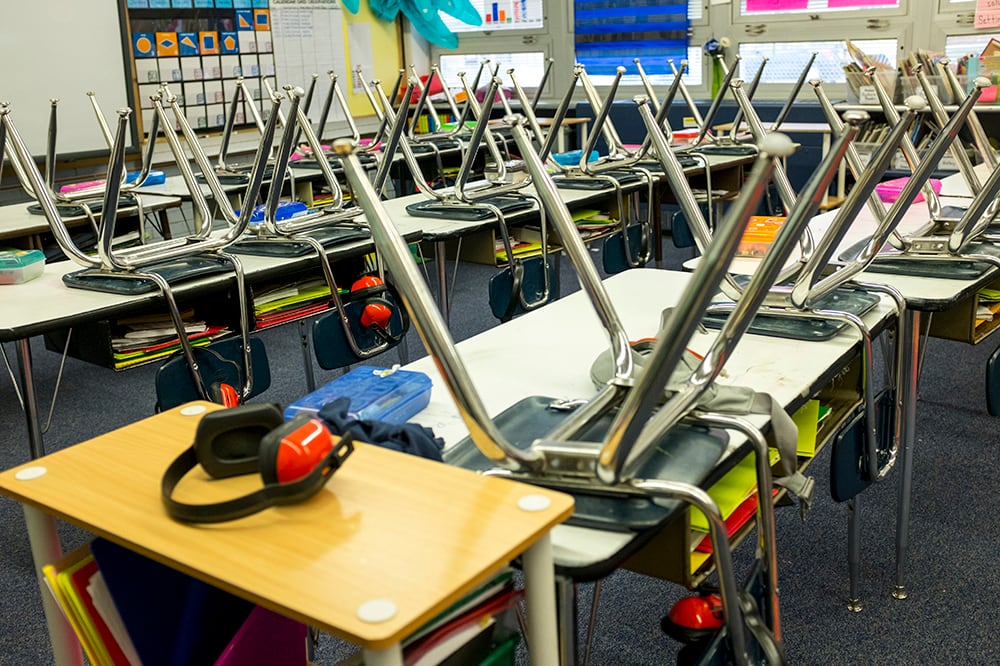Transportation struggles aren’t the only reason chronic absenteeism is so pervasive in Detroit schools, but it is the most common reason so many students aren’t showing up for class on a regular basis, Wayne State University researchers say in a new report.
About 50% of students in district and charter schools in Detroit are considered chronically absent, meaning they miss about 10% or more of the school year.
The Wayne State researchers, who are part of the Detroit Education Research Partnership, warn that the pandemic has exacerbated the problem, and that seems to be validated by increased chronic absenteeism so far in the Detroit Public Schools Community District. The researchers predict chronic absenteeism will get worse in the fall unless school and community leaders come up with new solutions for school transportation.
As part of the study, the researchers conducted in-depth interviews with Detroit parents, high school students, and school staff during the 2019-20 school year. They also analyzed attendance trends in the city.
Here, we highlight several key findings from the research. You can read the full report here. And check out the sidebar below to see some of the recommendations.
Transportation is a major barrier
Transportation “was the most frequently requested resource when we asked parents what would help them with their child’s attendance,” the report says. But the issues aren’t just about access to transportation.
Some parents don’t own a car and some who did said their car was unreliable, or broke down frequently and needed repairs they can’t afford. Some said taking city buses was unreliable or unsafe. And some expressed frustration that they don’t have access to school transportation. Walking to school, the parents said, isn’t always a safe option because of crime, inclement weather, or because their children are too young.
Meanwhile, some parents pointed to a “lack of social support that often left them with limited transportation options when their routines were disrupted and they had to find backup transportation to get their children to or from school.”
“I don’t have a lot of people, or pretty much nobody to rely on to be able to take her to school if I’m not able,” one parent told the researchers.
The report says that the pandemic is likely to mean more families will have fewer resources to get their kids to school, and they won’t be able to rely on an already limited social and family network to help because of social distancing protocols.
Health concerns are also a barrier
Illnesses — because of conditions such as diabetes, severe asthma, or allergies — added “a substantial number of days on top of other reasons that students were absent.” The researchers said these issues are compounded by problems with access to health care.
Mental health, too, affects student attendance, the researchers said.
The pandemic will only exacerbate these issues, they said, because families “are more likely to keep their children home if they appear sick or if they are concerned about sickness.”
Parents want their kids in school
The researchers found that parents are keenly aware of the importance of having their kids in school because they want “to instill in their children a view that school was important and that they should not make excuses to stay home.”
Some, in fact, reported they go to great lengths to try to get their kids to school — including turning to any relative they can find to help and adjusting their work schedules.
Despite that, many said they often find themselves making trade-offs, prioritizing their children’s safety and health and their family income.
“The fact that decisions about well-being often required a trade-off with attending school reflect the unjust conditions they face — conditions that may demand even more trade-offs in light of the public health and economic impacts of COVID-19,” the report says.






